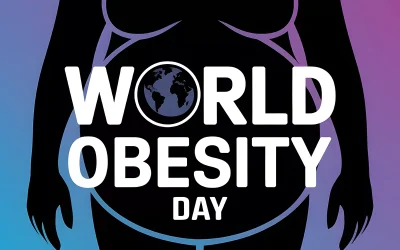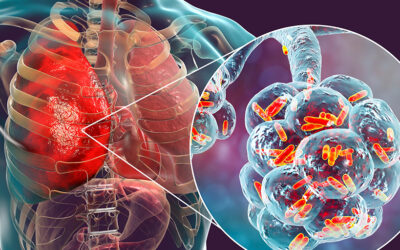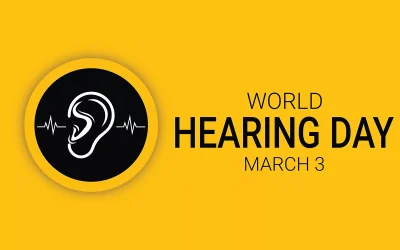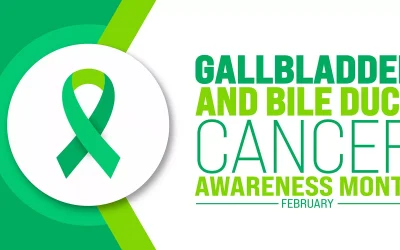Understanding Gas-Related Chest Pain: Causes, Symptoms, and Treatment
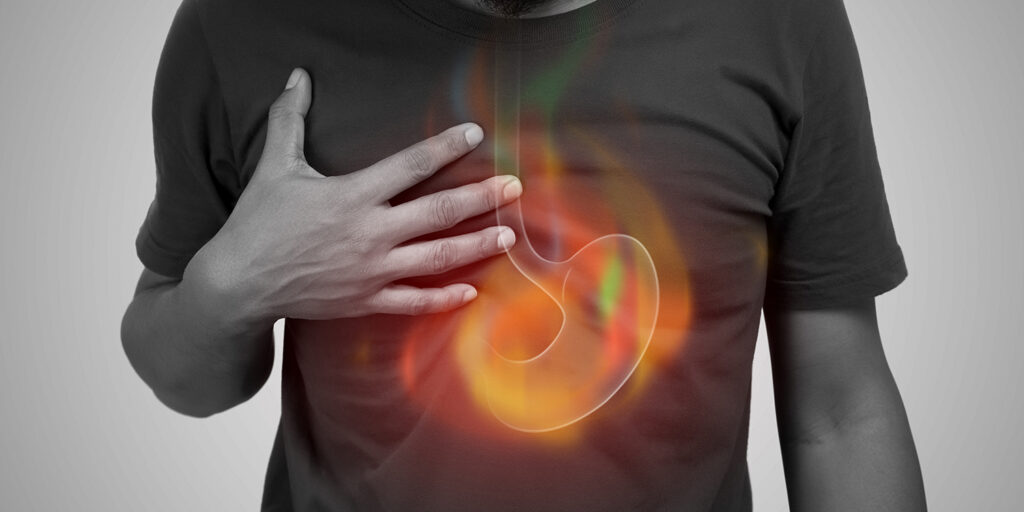
Chest pain can be alarming, often making people worry about heart problems. In many cases, however, the pain is caused by buildup of gas in the digestive tract. While gas pain in the chest is usually harmless, it can cause significant discomfort and anxiety. The good news is that gas-related chest pain can often be relieved with simple lifestyle changes, home remedies, and over-the-counter medications. In this blog, we will explore the causes, symptoms, and diagnosis of gas-related chest pain, along with effective treatment options and prevention strategies to help manage and avoid discomfort. But first, let’s understand the basics.
Table of Contents
ToggleWhat is Gas-Related Chest Pain?
Gas-related chest pain occurs when excess gas builds up in the digestive tract, leading to pressure and discomfort that can be felt in the chest. This happens because the oesophagus and stomach are located close to the chest, and trapped gas or bloating in the stomach can create sensations that mimic heart-related pain.
Unlike cardiac chest pain, which is often linked to heart disease, gas-related pain is usually temporary and relieved by burping, passing gas, or making digestive adjustments. It is commonly triggered by factors such as indigestion, acid reflux, or consuming gas-producing foods.
As gas pain can feel similar to heart-related discomfort, it is important to understand the differences between the two. While gas pain is often sharp or cramp-like and relieved with movement, heart pain tends to be more persistent, heavy, and accompanied by symptoms such as shortness of breath and dizziness.
What Causes Gas Pain in the Chest?
Gas pain in the chest can be caused by several digestive issues that lead to trapped air, bloating, or irritation in the gastrointestinal tract. Some common causes include:
Swallowing Excess Air
Eating too quickly, chewing gum, drinking carbonated beverages, or even talking while eating can lead to excess air entering the digestive system, causing bloating and chest discomfort.
Indigestion and Bloating
Overeating or consuming fatty, greasy, or spicy foods can slow digestion, leading to gas buildup and discomfort in the stomach, which may be felt in the chest.
Acid Reflux and GERD (Gastroesophageal Reflux Disease)
Acid reflux occurs when stomach acid flows back into the oesophagus, causing irritation and a burning sensation in the chest (heartburn). This can sometimes be mistaken for gas-related chest pain.
Food Intolerances and Sensitivities
Certain foods, such as dairy (lactose intolerance) or gluten, can trigger excessive gas production, leading to bloating, stomach discomfort, and chest pain.
Constipation and Slow Digestion
A sluggish digestive system can cause gas to remain trapped in the intestines, leading to abdominal bloating and pressure that can radiate to the chest.
Bacterial Overgrowth in the Gut
An imbalance in gut bacteria can lead to increased gas production, resulting in frequent bloating, burping, and digestive discomfort.
Symptoms of Gas-Related Chest Pain
Gas-related chest pain can be uncomfortable and sometimes alarming, as it may feel similar to heart-related pain. However, certain symptoms help distinguish gas pain from cardiac issues. Common symptoms of gas-related chest pain include:
- Tightness or pressure in the chest that worsens after eating.
- Sharp or cramping pain that moves around the chest or abdomen.
- Bloating and abdominal discomfort, often accompanied by a feeling of fullness.
- Frequent burping or belching, providing temporary relief.
- Pain relief after passing gas or making digestive adjustments.
- Heartburn or an acidic taste in the mouth, especially if acid reflux is involved.
- Mild breathlessness due to bloating pressing against the diaphragm.
How Gas Pain Differs from Heart-Related Pain:
While gas-related chest pain is typically sharp, cramping, or temporary, heart-related pain is often persistent, heavy, or radiating to the arm, jaw, or back. Gas pain also improves with burping or passing gas, whereas cardiac pain does not.
Recognizing these symptoms can help determine whether the pain is digestive-related or requires immediate medical attention.
When to See a Doctor
While gas-related chest pain is usually harmless and resolves with home remedies or lifestyle changes, certain symptoms may indicate a more serious condition. It is important to seek medical attention if the pain is persistent, severe, or accompanied by other concerning signs. Here are some red flags indicating medical attention is needed:
- Chest pain lasting more than a few minutes or worsening over time.
- Sudden, crushing chest pain that feels like pressure or tightness.
- Pain spreading to the arm, jaw, back, or shoulder, which could indicate a heart problem.
- Shortness of breath, dizziness, nausea, or excessive sweating.
- No relief after burping, passing gas, or using home remedies.
- A history of heart disease or risk factors such as high blood pressure, diabetes, or obesity.
- Loss of consciousness or extreme weakness.
Chest pain should never be ignored, as heart-related conditions can sometimes mimic gas pain. Also, if acid reflux or other digestive disorders are causing frequent chest pain, early intervention can prevent long-term damage to the oesophagus and digestive tract. If you’re unsure whether your chest pain is due to gas or something more serious, it’s always best to consult a healthcare professional for an accurate diagnosis.
How Is Gas-Related Chest Pain Diagnosed?
Since gas-related chest pain can sometimes resemble heart-related pain, a proper diagnosis is essential to rule out more serious conditions. Doctors use a combination of symptom analysis, physical examination, and medical tests to determine the exact cause of chest discomfort.
1. Medical History and Symptom Evaluation
A doctor will begin by asking about:
- The nature of the pain (sharp, dull, burning, or pressure-like).
- Triggers and relief factors (whether the pain worsens after eating or improves with burping).
- Associated symptoms such as bloating, belching, or acid reflux.
- Any history of digestive issues, such as GERD, acid reflux, or food intolerances.
- Risk factors for heart disease to rule out cardiac-related chest pain.
2. Physical Examination
- The doctor may press on the abdomen and chest to check for tenderness or bloating.
- Observing breathing patterns and heart rate helps differentiate gas-related pain from cardiovascular issues.
3. Diagnostic Tests (If Needed)
If the symptoms suggest a possible heart condition or digestive disorder, the following tests may be recommended:
- Electrocardiogram (ECG/EKG): Measures heart activity to rule out cardiac-related chest pain.
- Chest X-ray: Helps detect any abnormalities in the lungs or digestive tract.
- Endoscopy: Used if acid reflux or GERD is suspected, allowing a doctor to examine the oesophagus and stomach lining.
- Blood Tests: Can help check for infections, inflammation, or heart-related markers.
- Gastrointestinal Tests: If food intolerances or digestive issues are suspected, lactose intolerance tests or breath tests for bacterial overgrowth may be conducted.
4. Differentiating Gas Pain from Heart Pain
- Gas pain often improves after burping, passing gas, or adjusting digestion.
- Heart-related pain usually persists and may be accompanied by sweating, dizziness, or breathlessness.
- Acid reflux-related chest pain often includes a burning sensation and is aggravated by certain foods.
Once a digestive cause is confirmed, the next step is treatment and remedies to relieve gas-related chest pain effectively.
Treatment and Remedies for Gas-Related Chest Pain
Home Remedies for Quick Relief
Many natural remedies can help release trapped gas and ease chest discomfort:
- Drinking Warm Liquids: Warm water or herbal teas (such as ginger, peppermint, or chamomile) aid digestion and relieve bloating.
- Ginger and Peppermint Tea: Help relax the digestive tract and promote gas movement.
- Gentle Movement or Stretching: Walking or light stretches can help gas pass more easily.
- Applying a Warm Compress: Placing a heating pad or warm towel on the stomach can relax muscles and relieve bloating.
- Deep Breathing Exercises: Slow, deep breaths can reduce bloating by promoting relaxation and gas movement.
Lifestyle Changes for Long-Term Relief
To prevent recurring gas-related chest pain:
- Eat Slowly and Chew Food Properly: Reduces swallowed air and improves digestion.
- Avoid Carbonated Drinks and Chewing Gum: Prevents excess air from entering the stomach.
- Limit Gas-Producing Foods: Reduce intake of beans, lentils, cabbage, dairy (if lactose-intolerant), and artificial sweeteners.
- Stay Active After Meals: Light movement promotes digestion and reduces bloating.
- Manage Acid Reflux: Avoid spicy, fatty, and acidic foods that trigger heartburn and chest discomfort.
Most cases of gas-related chest pain improve with home remedies and dietary adjustments. However, if symptoms persist, medical evaluation is necessary to rule out other underlying conditions.
How to Prevent Gas-Related Chest Pain
Preventing gas-related chest pain involves making dietary, lifestyle, and digestive health changes to reduce gas buildup and improve digestion.
Eat Mindfully and Improve Digestion
- Chew food thoroughly to aid digestion and prevent swallowing excess air.
- Eat smaller, more frequent meals instead of large portions to reduce bloating.
- Avoid talking while eating to prevent air intake that can lead to gas buildup.
Avoid Gas-Producing Foods
Certain foods are known to cause excess gas, leading to bloating and discomfort. Limiting:
- Carbonated drinks, chewing gum, and artificial sweeteners that trap air in the digestive system.
- Gas-forming foods such as beans, lentils, broccoli, cabbage, and onions.
- Dairy products if lactose-intolerant.
Maintain a Healthy Lifestyle
- Stay physically active to promote digestion and prevent gas buildup.
- Avoid lying down immediately after meals, as this can worsen acid reflux and bloating.
- Drink plenty of water to aid digestion and prevent constipation.
Manage Acid Reflux and Gut Health
- Avoid spicy, fatty, and acidic foods that can trigger acid reflux, a common cause of chest discomfort.
- Take probiotics to maintain a healthy gut balance and reduce excessive gas production.
- Identify and avoid food intolerances that contribute to bloating and digestive discomfort.
Reduce Stress and Practice Breathing Exercises
- Chronic stress and anxiety can slow digestion and lead to bloating.
- Deep breathing exercises or yoga can relax abdominal muscles and promote better digestion.
Making these simple lifestyle and dietary adjustments can significantly reduce gas-related chest pain and improve digestive health.
Conclusion
Gas-related chest pain is often harmless but can be uncomfortable and sometimes mistaken for heart-related issues. However, chest pain should never be ignored, especially if it is persistent, severe, or accompanied by symptoms such as shortness of breath, dizziness, or radiating pain. Seeking medical advice can help determine whether the pain is due to gas or an underlying health issue. At Graphic Era Hospital, our specialists provide comprehensive diagnosis and treatment for digestive concerns and other conditions causing chest pain. If you’re experiencing frequent or unexplained chest discomfort, schedule a consultation today to get expert care and relief.
Frequently Asked Questions
Can gas-related chest pain last for hours?
Yes, gas-related chest pain can persist for several hours, especially if caused by overeating, acid reflux, or slow digestion. However, the pain usually fluctuates in intensity and improves with movement, burping, or passing gas. If the pain remains constant or worsens, it is best to seek medical evaluation.
Why does gas pain sometimes feel like a heart attack?
The oesophagus and stomach share nerve pathways with the heart, so gas pain in the upper digestive tract can sometimes mimic cardiac pain. Additionally, bloating or acid reflux can create pressure in the chest, leading to discomfort similar to heart-related symptoms.
Can lying down worsen gas-related chest pain?
Yes, lying down immediately after eating can cause acid reflux, leading to a burning sensation or discomfort in the chest. Staying upright for at least 2-3 hours after meals and sleeping with an elevated head can help prevent gas buildup and acid reflux.
Does drinking cold water help with gas pain in the chest?
Cold water may not always help and, in some cases, can slow digestion and worsen bloating. Warm water or herbal teas such as ginger or peppermint are often more effective in soothing gas-related discomfort.
Can frequent gas pain in the chest be a sign of an underlying condition?
Yes, if gas-related chest pain is frequent or severe, it could indicate an underlying issue such as GERD (acid reflux), food intolerances, irritable bowel syndrome (IBS), or bacterial overgrowth in the gut. A doctor can perform tests to identify the root cause.
Can certain medications cause gas-related chest pain?
Yes, some medications, such as antibiotics, painkillers (NSAIDs), and certain diabetes or blood pressure medications, can cause bloating, acid reflux, or digestive discomfort that leads to gas-related chest pain. If this occurs frequently, consult a doctor about alternative medications or digestive aids.
Is gas-related chest pain more common at night?
Yes, gas-related chest pain can worsen at night, especially if caused by acid reflux or overeating before bed. Lying down can allow stomach acid to flow back into the oesophagus, leading to discomfort. Eating dinner at least 2-3 hours before bedtime and avoiding trigger foods can help.
By Specialities
- Bariatric Surgery
- Cancer Care
- Cardiology
- Dental
- Dermatology
- Diabetes & Endocrinology
- Endocrinology and Diabetes
- ENT (Ear Nose Throat)
- Eye Care
- Gastroenterology
- Haematology
- Health Awareness
- Health Care
- Health Tips
- Hematology
- Hepatology
- Internal Medicine
- Mental Health and Behavioural Sciences
- Metabolic
- Neonatology
- Nephrology
- Neurology
- Nutrition & Dietetics
- Obstetrics & Gynaecology
- Oncology
- Ophthalmology
- Orthopaedics
- Paediatric
- Physiotherapy & Rehabilitation
- Plastic and Reconstructive Surgery
- Psychology
- Pulmonology
- Rheumatology
- Spine
- Urology
Recent Posts
- A Complete Guide to Blood Clots in the Brain
- Heart Attack: Symptoms and Treatment
- World Obesity Day 2026: Understanding, Preventing, and Managing Obesity
- Bacterial and Viral Pneumonia: Causes, Symptoms, and Treatment Options
- World Hearing Day 2026: Empower Yourself to Protect and Improve Your Hearing
Need expert medical advice?
Share your details and our healthcare specialists will reach out to assist you.
By proceeding, you acknowledge and agree to our Privacy Policy, Terms of Use, and Disclaimer.
